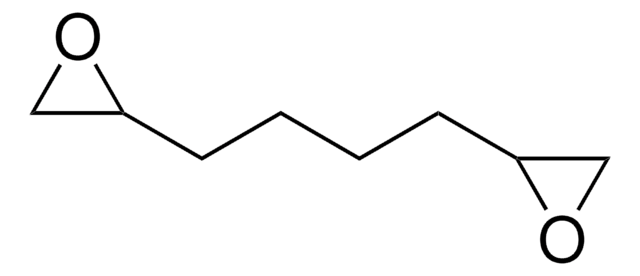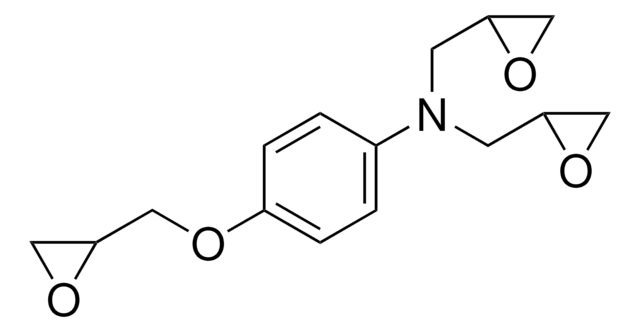202533
1,3-Butadiene diepoxide
97%
Synonym(s):
1,2,3,4-Diepoxybutane
About This Item
Recommended Products
vapor pressure
25 mmHg ( 56 °C)
Assay
97%
form
liquid
impurities
<3% methylene chloride
refractive index
n20/D 1.434 (lit.)
bp
56-58 °C/25 mmHg (lit.)
mp
2-4 °C (lit.)
density
1.113 g/mL at 25 °C (lit.)
storage temp.
2-8°C
SMILES string
C1OC1C2CO2
InChI
1S/C4H6O2/c1-3(5-1)4-2-6-4/h3-4H,1-2H2
InChI key
ZFIVKAOQEXOYFY-UHFFFAOYSA-N
Looking for similar products? Visit Product Comparison Guide
Signal Word
Danger
Hazard Statements
Precautionary Statements
Hazard Classifications
Acute Tox. 1 Inhalation - Acute Tox. 2 Dermal - Acute Tox. 3 Oral - Carc. 1B - Eye Dam. 1 - Flam. Liq. 3 - Muta. 1B - Skin Corr. 1B
Storage Class Code
3 - Flammable liquids
WGK
WGK 3
Flash Point(F)
114.8 °F - closed cup
Flash Point(C)
46 °C - closed cup
Personal Protective Equipment
Certificates of Analysis (COA)
Search for Certificates of Analysis (COA) by entering the products Lot/Batch Number. Lot and Batch Numbers can be found on a product’s label following the words ‘Lot’ or ‘Batch’.
Already Own This Product?
Find documentation for the products that you have recently purchased in the Document Library.
Our team of scientists has experience in all areas of research including Life Science, Material Science, Chemical Synthesis, Chromatography, Analytical and many others.
Contact Technical Service











